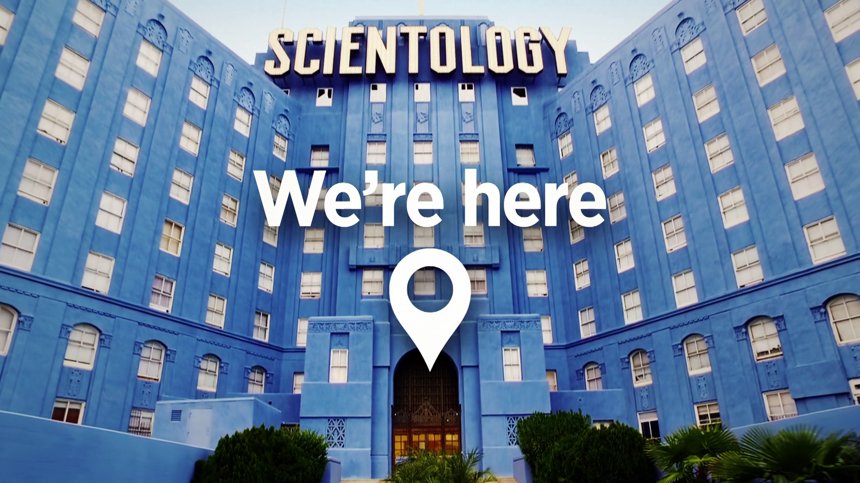Understanding Church of Scientology: Beginnings, Beliefs, and Practices Revealed
Understanding Church of Scientology: Beginnings, Beliefs, and Practices Revealed
Blog Article
Unveiling the Beliefs and Practices of Church of Scientology
As a interesting and commonly questionable subject, the Church of Scientology has long mixed inquisitiveness and argument. Central to Scientology is the concept of auditing, a kind of spiritual therapy aimed at achieving a state of clearness and self-realization.
Founder and Core Beliefs
Started in the mid-20th century by L. Ron Hubbard, the Church of Scientology is based on the core ideas focused around the principle of spiritual knowledge and self-improvement. Hubbard, a respected writer and philosopher, developed Scientology as a religious beliefs in 1954, stressing the idea that people are never-ceasing souls who have neglected their real nature. Central to Scientology is the belief in the immortal soul, or the "thetan," which is the true self that goes beyond the physical body.
Hubbard created a collection of mentors and techniques focused on aiding people attain spiritual awareness and conquer past traumas via a process called auditing. Auditing involves an one-on-one session with an experienced auditor who overviews the individual via a series of workouts and concerns designed to discover and resolve negative experiences or emotions. Through bookkeeping, fans of Scientology seek to achieve a state of "clear," where they are devoid of the unfavorable results of past injuries and can run at their complete potential.
Bookkeeping and Spiritual Practices

Apart from auditing, the Church of Scientology additionally stresses different spiritual techniques to improve individual growth and self-awareness. These practices include researching the trainings of Scientology owner L. Ron Hubbard, getting involved in community events, and involving in moral habits. Fans are urged to apply these spiritual methods in their day-to-day lives to attain spiritual knowledge and individual gratification. On the whole, auditing and spiritual techniques work as fundamental devices in the trip towards spiritual knowledge within the Church of Scientology.
Sea Org and Organizational Framework
The Church of Scientology's operational efficiency and ordered structure are exhibited via the Sea Org and its business framework. The Sea Company, generally referred to as Sea Org, is a religious order within Scientology that plays a critical role in overseeing the day-to-day operations of the church. Members of the Sea Org dedicate to lifetime of service, signing a billion-year agreement symbolizing their devotion to the church's mission.
The business structure of the Sea Org is highly centralized, with a stringent pecking order that makes sure clear lines of authority and responsibility. At the top of the framework is the Commodore's Messenger Organization (CMO), which serves as the liaison in between the Sea Org and the Church's management. Below the CMO are numerous departments and units accountable for different elements of the church's operations, such as administration, resource safety, and interaction.

Conflicts and Objections
Amidst the prevalent impact and operations of the Church of Scientology, various debates and criticisms have appeared, triggering debates and examination from numerous quarters. One major factor of opinion rotates around the Church's practices of detaching participants from those who question the company or slam, consisting of friends and family - Scientology South Africa. Movie critics argue that this plan can result in isolation and the break down of relationships outside the Church
One more contentious issue is the Church's aggressive litigation tactics versus former participants, journalists, and others who speak up against Scientology. These legal battles have elevated worries about freedom of expression and the use of litigation as a tool to silence dissent.

Star Participation and Influence
One aspect that has dramatically added to the general public photo and reach of the Church of Scientology is the involvement and impact of celebs in its techniques and promotion. Given that its inception, the Church of Scientology has actively sought the support of popular numbers in the show business. Prominent celebrities such as Tom Cruise Ship, John Travolta, and Kirstie Alley have actually publicly backed Scientology, bringing focus to the religious beliefs and bring in brand-new fans.
Celebrity involvement in Scientology exceeds mere recommendation; some celebs hold prominent settings within the Church. For instance, Tom Cruise, one of the most popular Scientologists, is thought about a noticeable figure within the company and has actually been involved in promoting Scientology internationally - Church of Scientology. These celeb recommendations and energetic engagement in spreading out the ideas of Scientology have helped enhance the visibility and approval Click Here of the religious beliefs, particularly among followers and fans of these stars
Nonetheless, the impact of celebs in Scientology has actually likewise been a topic of controversy, with critics suggesting that their involvement boosts the understanding of Scientology as a celebrity-driven cult rather than a reputable spiritual organization.
Verdict
In verdict, the Church of try here Scientology, established by L. Ron Hubbard, is based on the principles of bookkeeping and spiritual methods. The beliefs and methods of the Church of Scientology continue to be a topic of dispute and analysis within culture.
Founded in the mid-20th century by L. Ron Hubbard, the Church of Scientology is based on the core ideas focused around the concept of spiritual enlightenment and self-improvement.Auditing and spiritual methods in the Church of Scientology play an essential function in directing fans in the direction of spiritual understanding and personal growth.Apart from bookkeeping, the Church of Scientology additionally stresses numerous spiritual practices to enhance individual development and self-awareness. In general, bookkeeping and spiritual techniques serve as essential tools in the trip towards spiritual enlightenment within the Church of Scientology.
In conclusion, the Church of Scientology, founded by L. Ron Hubbard, is based on the principles of auditing and spiritual methods.
Report this page